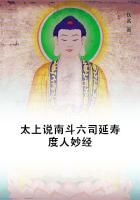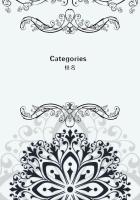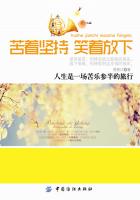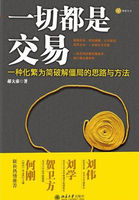Hume is perhaps the ablest and most ingenious of all sceptical philosophers, and his writings have, undoubtedly, exerted the most powerful influence in awakening reason to a thorough investigation into its own powers.It will, therefore, well repay our labours to consider for a little the course of reasoning which he followed and the errors into which he strayed, although setting out on the path of truth and certitude.
Hume was probably aware, although he never clearly developed the notion, that we proceed in judgements of a certain class beyond our conception if the object.I have termed this kind of judgement synthetical.As regard the manner in which I pass beyond my conception by the aid of experience, no doubts can be entertained.Experience is itself a synthesis of perceptions; and it employs perceptions to increment the conception, which I obtain by means of another perception.But we feel persuaded that we are able to proceed beyond a conception, and to extend our cognition a priori.We attempt this in two ways- either, through the pure understanding, in relation to that which may become an object of experience, or, through pure reason, in relation to such properties of things, or of the existence of things, as can never be presented in any experience.This sceptical philosopher did not distinguish these two kinds of judgements, as he ought to have done, but regarded this augmentation of conceptions, and, if we may so express ourselves, the spontaneous generation of understanding and reason, independently of the impregnation of experience, as altogether impossible.The so-called a priori principles of these faculties he consequently held to be invalid and imaginary, and regarded them as nothing but subjective habits of thought originating in experience, and therefore purely empirical and contingent rules, to which we attribute a spurious necessity and universality.In support of this strange assertion, he referred us to the generally acknowledged principle of the relation between cause and effect.No faculty of the mind can conduct us from the conception of a thing to the existence of something else; and hence he believed he could infer that, without experience, we possess no source from which we can augment a conception, and no ground sufficient to justify us in framing a judgement that is to extend our cognition a priori.That the light of the sun, which shines upon a piece of wax, at the same time melts it, while it hardens clay, no power of the understanding could infer from the conceptions which we previously possessed of these substances; much less is there any a priori law that could conduct us to such a conclusion, which experience alone can certify.On the other hand, we have seen in our discussion of transcendental logic, that, although we can never proceed immediately beyond the content of the conception which is given us, we can always cognize completely a priori- in relation, however, to a third term, namely, possible experience- the law of its connection with other things.For example, if I observe that a piece of wax melts, I can cognize a priori that there must have been something (the sun's heat) preceding, which this law; although, without the aid of experience, I could not cognize a priori and in a determinate manner either the cause from the effect, or the effect from the cause.Hume was, therefore, wrong in inferring, from the contingency of the determination according to law, the contingency of the law itself; and the passing beyond the conception of a thing to possible experience (which is an a priori proceeding, constituting the objective reality of the conception), he confounded with our synthesis of objects in actual experience, which is always, of course, empirical.Thus, too, he regarded the principle of affinity, which has its seat in the understanding and indicates a necessary connection, as a mere rule of association, lying in the imitative faculty of imagination, which can present only contingent, and not objective connections.
The sceptical errors of this remarkably acute thinker arose principally from a defect, which was common to him with the dogmatists, namely, that he had never made a systematic review of all the different kinds of a priori synthesis performed by the understanding.Had he done so, he would have found, to take one example among many, that the principle of permanence was of this character, and that it, as well as the principle of causality, anticipates experience.In this way he might have been able to describe the determinate limits of the a priori operations of understanding and reason.But he merely declared the understanding to be limited, instead of showing what its limits were; he created a general mistrust in the power of our faculties, without giving us any determinate knowledge of the bounds of our necessary and unavoidable ignorance; he examined and condemned some of the principles of the understanding, without investigating all its powers with the completeness necessary to criticism.He denies, with truth, certain powers to the understanding, but he goes further, and declares it to be utterly inadequate to the a priori extension of knowledge, although he has not fully examined all the powers which reside in the faculty; and thus the fate which always overtakes scepticism meets him too.That is to say, his own declarations are doubted, for his objections were based upon facta, which are contingent, and not upon principles, which can alone demonstrate the necessary invalidity of all dogmatical assertions.















